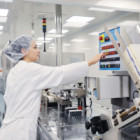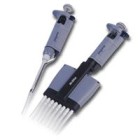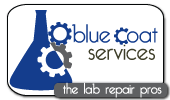Simple Solutions for Laboratory Safety
Posted by bluecoatservices on Jul 26, 2013 in bcs News

One of the first things most people learn about when they get into a field requiring lab work is how to keep themselves safe. Whether you’re a medical student or work in a chemistry laboratory, potential hazards are always present. While being aware of dangers in the lab might seem like preparation enough, there truly is no such thing as being “too safe”. Likewise, no amount of acting safely can discount the need for the proper safety equipment while handling dangerous materials. If a member of your team refuses to protect themselves they are doing more than putting their own well-being at risk – they are also diminishing the productivity of the entire group. Not everyone is going to be equally educated in lab safety, but the following information can be understood and helpful to anyone. Use Appropriate Equipment Your body is more fragile than you would initially think. Thousands of laboratory accidents are reported annually, some of which involving severe bodily harm. It’s for this reason that trained professionals work tirelessly to create and test the best lab safety gear. Safety Goggles, for example, should be located in every lab you find yourself in. The plastic, wide frame design is perfectly suited for keeping hazardous materials from entering your eyes, while still providing the ability to see. Safety goggles should be worn whenever you’re handling liquid, vapors, smoke, or materials that may produce sparks. Thick plastic gloves are often found in labs, as it is difficult to avoid working with your hands. Ensure that you wash your hands before and after putting the gloves on, and that you have the appropriate gloves for what you will be doing. There are many differences between heat resistant gloves and powdered gloves; know which job calls for each kind of hand gear! Also, do not forget your protective apron or lab jacket! Spilling chemicals or blood on one’s person is a very common accident, and can happen to anybody. Tying a single knot or snapping a few buttons could save not only your clothing, but your life. Work as a Group If you are working in a laboratory there’s a strong chance that you’re doing so with others. Research and practice should be a group experience whenever possible. Not only does it help produce clearer, more accurate results, but working alone can be dangerous. If something happens to you while in...
Read MoreTips on Maintaining Laboratory Equipment
Posted by bluecoatservices on Jul 8, 2013 in bcs News

As a laboratory technician, the responsibility of regularly maintaining the lab’s equipment in top working condition lies on your shoulders. The usability of equipment depends on their precise measurements and they must not be compromised by neglect. The business of labs relies on delivering accurate results in the least possible turnaround time. Here, we will look at some of the methods we can follow that will help keep the equipment in their best condition. Refurbishing This is when the equipment is disassembled thoroughly and cleaned inside out. Then the pieces are all polished and pistons of pipettes are re-lubricated. Parts that are found faulty are replaced. After the process has been completed, the pipette dispenser and burettes will be working like new. Repairing While some equipment has to be completely replaced, in many instances, you can continue to work with some lab equipment by making some simple repairs. Many times these are done with parts replaced when needed. This is the best way to increase the functional life of larger equipment. We don’t buy a new car when all you need to do is repair a timing belt; well, the analogy works for your lab equipment also. There are always some parts that wear faster than others. For these, good preventive maintenance is needed.Equipment, such as centrifuges, need to be maintained in excellent working conditions. Failing to do so could prove hazardous to lab technicians, and ruin the results of any lab work used with that equipment. Calibration Services Timely and periodical calibration services are required while maintaining the equipment. Detailed, preventive maintenance procedures are important in preventing data corruption. For calibration, there are levels of service available from basic preventive maintenance to advanced accuracy verification for cGMP/cGLP. Other than calibration, there are other processes involved in the maintenance of lab equipment. Cleaning This seems so simple, yet is often overlooked. This is an important part of keeping equipment in top working order. Wipe clean the exteriors of equipment daily. Hard clean once a week. Specific machines may have a certain way of cleaning them. For example, if it’s a hematology machine, clean the analyzer surface weekly, check HC control monthly, and have an engineer check the whole system every six months. If it’s a chemistry machine, besides the analyzer surface, clean the upper and lower heater weekly and check Humatrol control every six months. For a microscope, clean...
Read More
